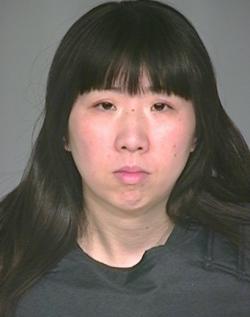Bei Bei Shuai, the Indiana woman charged with murder and attempted feticide for trying to commit suicide while pregnant, was recently released from jail for the first time in more than a year. She posted bond, and now she waits for her trial in December. And in the meantime, we can consider what her case tells us about the way our culture regards motherhood.
Shuai, a pregnant Chinese immigrant, ate pellets of rat poison, and now she faces the possibility of spending decades in prison for it. According to The Nation:
In December 2010 Shuai was running a Chinese restaurant in Indianapolis with her boyfriend, Zhiliang Guan, by whom she was eight months pregnant. Just before Christmas, he informed her that he was married and had another family, to which he was returning. When Shuai begged him to stay, he threw money at her and left her weeping on her knees in a parking lot. Despairing, she took rat poison and wrote a letter in Mandarin saying she was killing herself and would “take this baby with me to Hades.”
Friends found her and took her to the hospital. Her little girl, Angel, was delivered by cesarean section and died a few days later. (Shuai is said to have held her baby for hours and wept while she died.) Shuai spent a month in a psych ward, was released, and then arrested by the state.

Photo courtesy the Indianapolis Metropolitan Police Department.
As a New York Times magazine piece demonstrated last month, Shuai’s is far from a lone instance. It appears there is a growing trend toward criminalizing mothers who do things like take drugs or fall down stairs (allegedly on purpose) while they’re pregnant. And, as with those other cases, feminists and pro-choice advocates have rallied around Shuai, arguing that attempts to criminalize behavior like hers is part of a broader effort to promote the idea of fetal personhood, and that it poses a threat to other mentally ill pregnant women by discouraging them from seeking help. The Nation reported that eighty groups and experts, including the National Alliance on Mental Illness and the American College of Obstetricians and Gynecologists, have filed briefs on Shuai’s behalf.
Anti-abortion advocates and those on the political right have tended not to write about the case, probably because the story is so clearly a tragedy in every way, and because Shuai’s mental illness makes it difficult to demonize her. An exception is this headline from a Fox affiliate in Indiana: “Mother accused of killing unborn baby with rat poison released on bond.” Note the implication that the mother fed poison to said baby directly, as if the mother was not in fact trying to kill herself, as if the mother’s life were itself an afterthought.
This is such a difficult case. You can sympathize with Shuai and her apparent mental illness while also being deeply disturbed by what she did. But her prosecution by Marion County prosecutor Terry Curry, a Democrat, seems entirely inappropriate, and speaks to the increasingly common notion of pregnant women as mere vessels for baby-making. I’d argue that you see this not only in the rise of personhood bills, but in the broader ways in which we make women secondary to their role as mothers, as Elisabeth Badinter and our own Hanna Rosin have demonstrated. Shuai’s story is yet another test case for a culture that too often frames the needs of mothers as at odds with those of their offspring.